How Often Do Spring, TX Water Heaters Need to be Replaced?
Spring homeowners often neglect their water heaters until they find themselves without hot water. To avoid inconvenient and potentially hazardous situations, it's crucial to maintain your water heater properly. Our experienced plumber, who specializes in water heater repair and replacement, will outline in this guide the indicators that suggest a replacement is necessary. We'll also cover essential factors to keep in mind when purchasing a new system. Read on to discover how you can guarantee a consistent hot water supply for your household.

What is the lifespan of a water heater?
Hot water heaters are important for everyday activities like bathing, washing clothes, and cleaning dishes. But, just like any other appliance, their lifespan can be affected by different things. Generally, a hot water heater can last from 8 to 12 years.
Tankless water heaters usually last longer than traditional units.
Proper installation and regular maintenance are essential for maximizing the lifespan of your water heater. Neglecting these important steps can significantly reduce its longevity.
Regular maintenance and frequent checks are crucial for keeping your water heater running efficiently and extending its lifespan.
Using your water heater excessively every day and having high levels of hard water can speed up the damage and reduce the effectiveness of your unit over time.

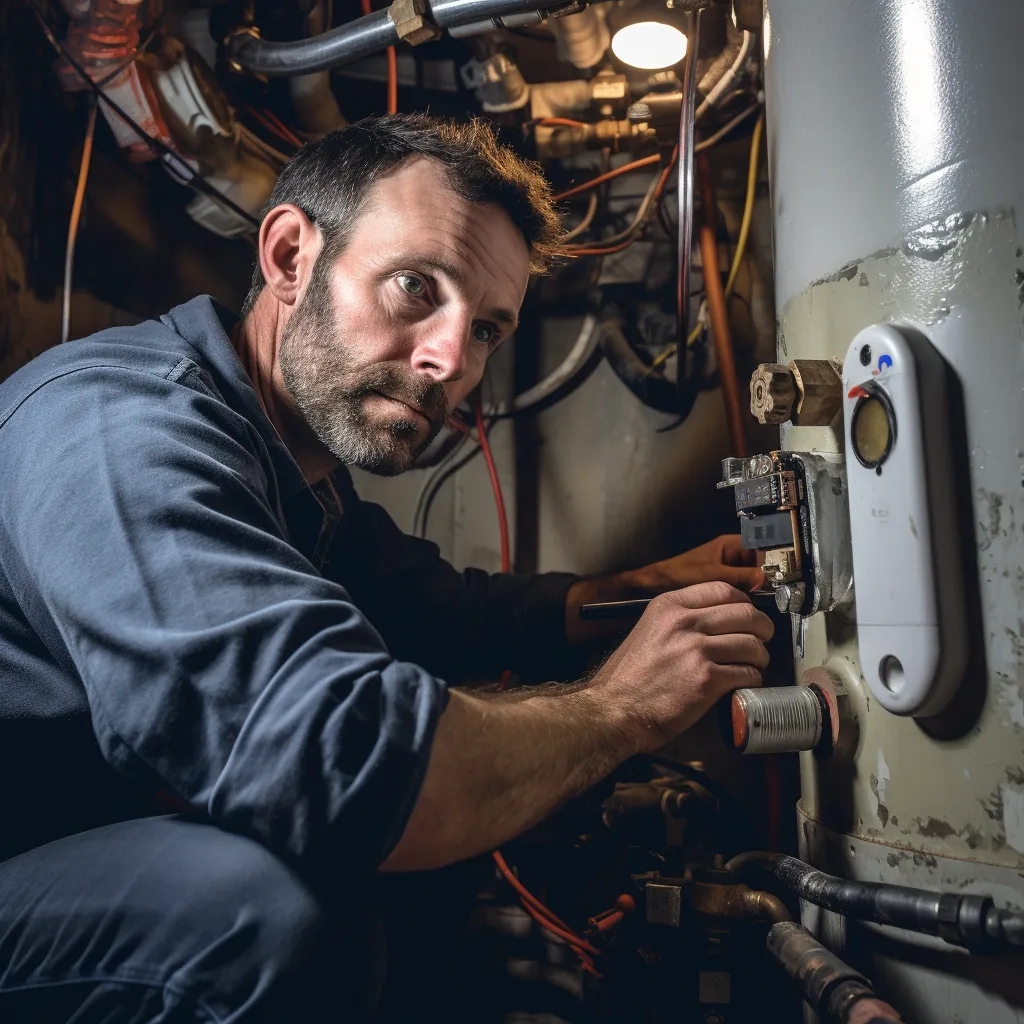
Make sure water heater upgrade fits your budget
Choosing the right water heater for your home and budget can be overwhelming. Consider your budget and what your household needs. Think about energy efficiency, capacity, and how it fits with your lifestyle. Some models may cost more at first but can save you money on energy bills in the long run. Investing in a good water heater can save you money in the long term. Take your time and carefully consider all your options before deciding.

Deciding to replace a water heaters is significant
When choosing a new water heater, it's crucial to think it through. Efficiency, age, and cost are important factors to consider. If your current water heater is over ten years old or frequently needs repairs, it's a sign that you should consider upgrading to a more efficient model. By doing this, you can improve your water heater's performance and lower your utility bills.
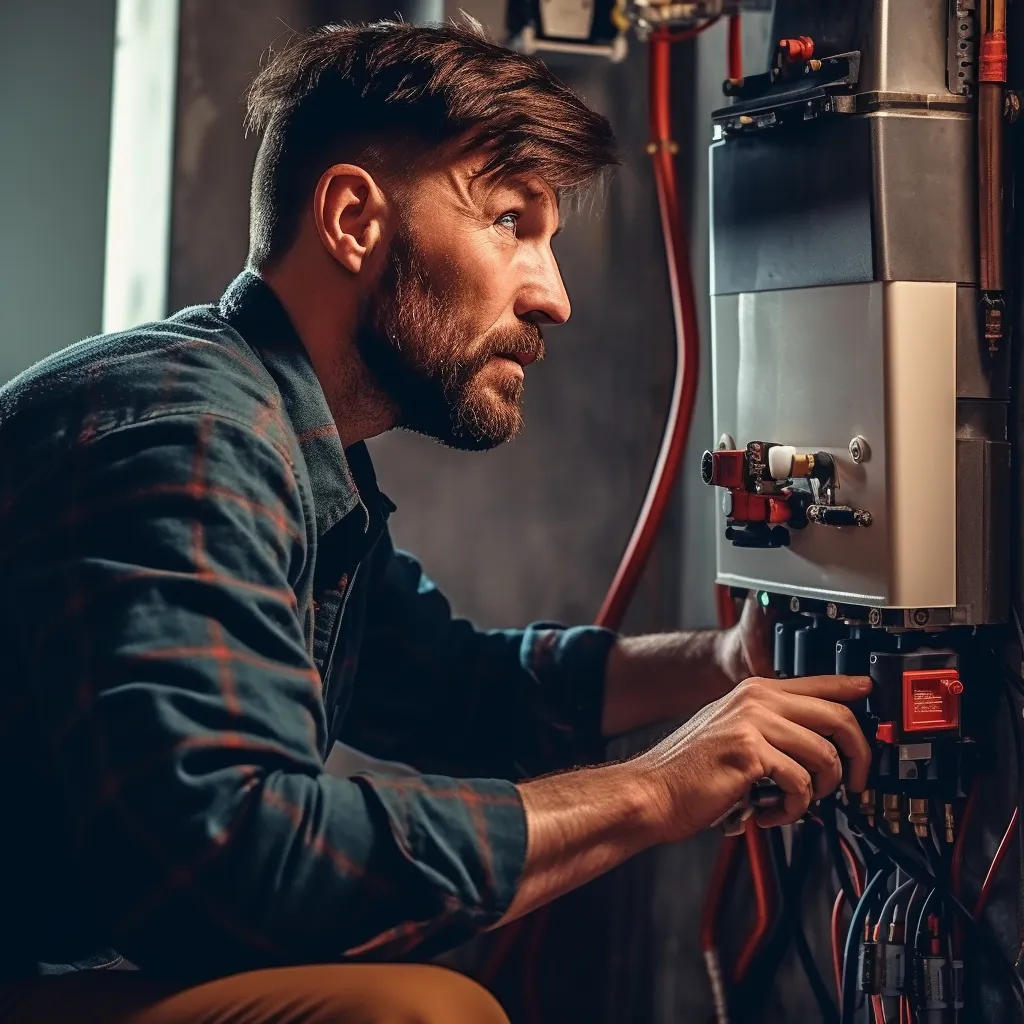
Tips on how to extend the life of your water heater
To prolong the lifespan of your water heater, there are several simple steps you can take:
Regular maintenance: It is important to regularly inspect and maintain your water heater. This includes flushing the tank every year to remove sediment buildup and checking for any leaks or signs of corrosion. Hiring a professional plumber to perform a thorough inspection is recommended.
Adjust the temperature: Setting your water heater's temperature to an appropriate level can help prevent excessive wear and tear. Most manufacturers recommend a temperature of 120 degrees Fahrenheit. This not only helps to extend the lifespan of your water heater but also reduces energy consumption and lowers utility bills.
Insulate your water heater: Adding insulation to your water heater can help minimize heat loss and improve its efficiency. Insulation blankets or jackets specifically designed for water heaters are readily available and can be easily installed.
Install a water softener: If you live in an area with hard water, consider installing a water softener. Hard water contains minerals that can accumulate inside the tank, leading to corrosion and reduced efficiency. A water softener helps to eliminate these minerals, thus prolonging the life of your water heater.
Use an expansion tank: Installing an expansion tank can help relieve the pressure that builds up inside the water heater due to thermal expansion. This additional safety measure protects the tank from excessive stress and potential damage.
Remember, following these simple steps can significantly extend the lifespan of your water heater and save you money in the long run.
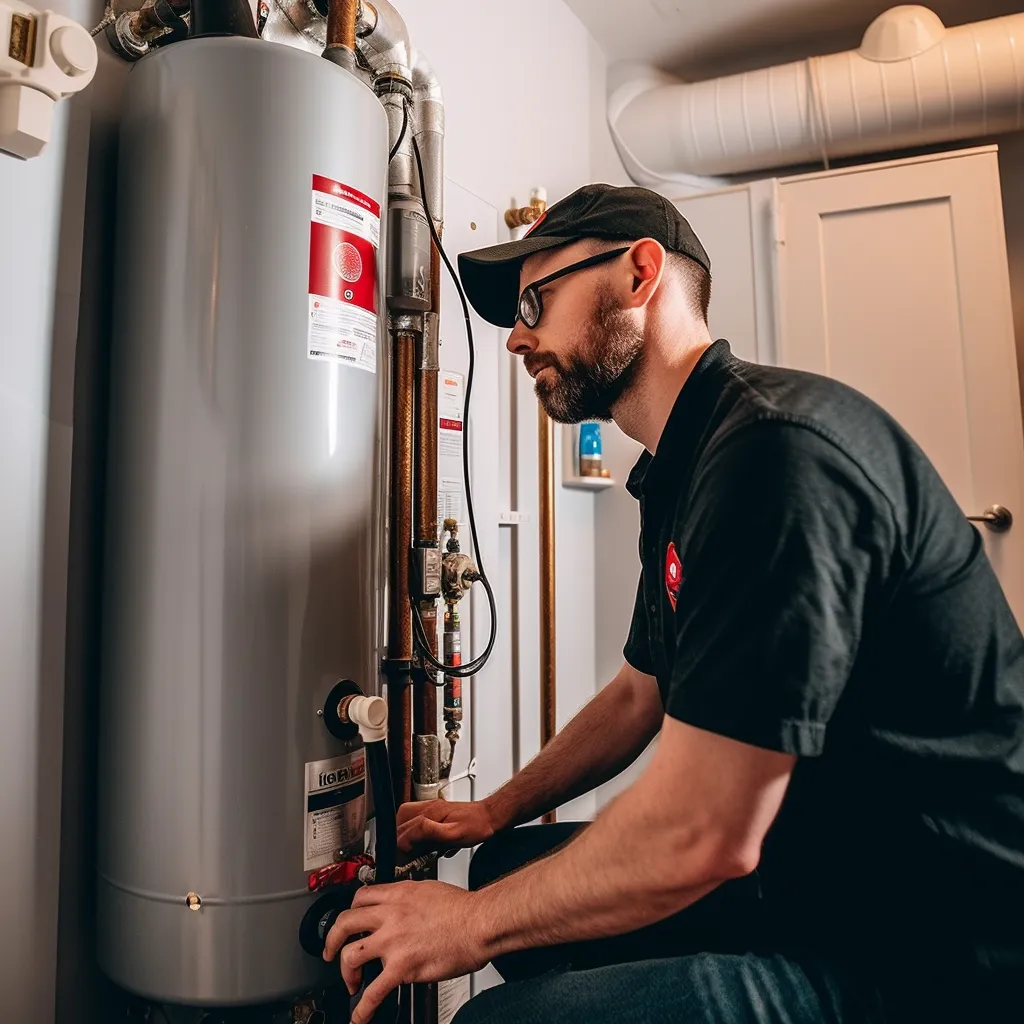
Promptly take care of any malfunctions
To keep your water heater running smoothly, it's important to take care of any issues as soon as they arise. If you notice that there's not enough hot water or if you hear any unusual sounds coming from your heater, it's a sign that something might be wrong. It's best to get in touch with a professional right away to get any necessary repairs done. This will not only help to prolong the lifespan of your water heater but also save you money in the long run.
Signs it's time to get a new water heater
Are you wondering if it's time to replace your water heater? Here are some signs to look out for:
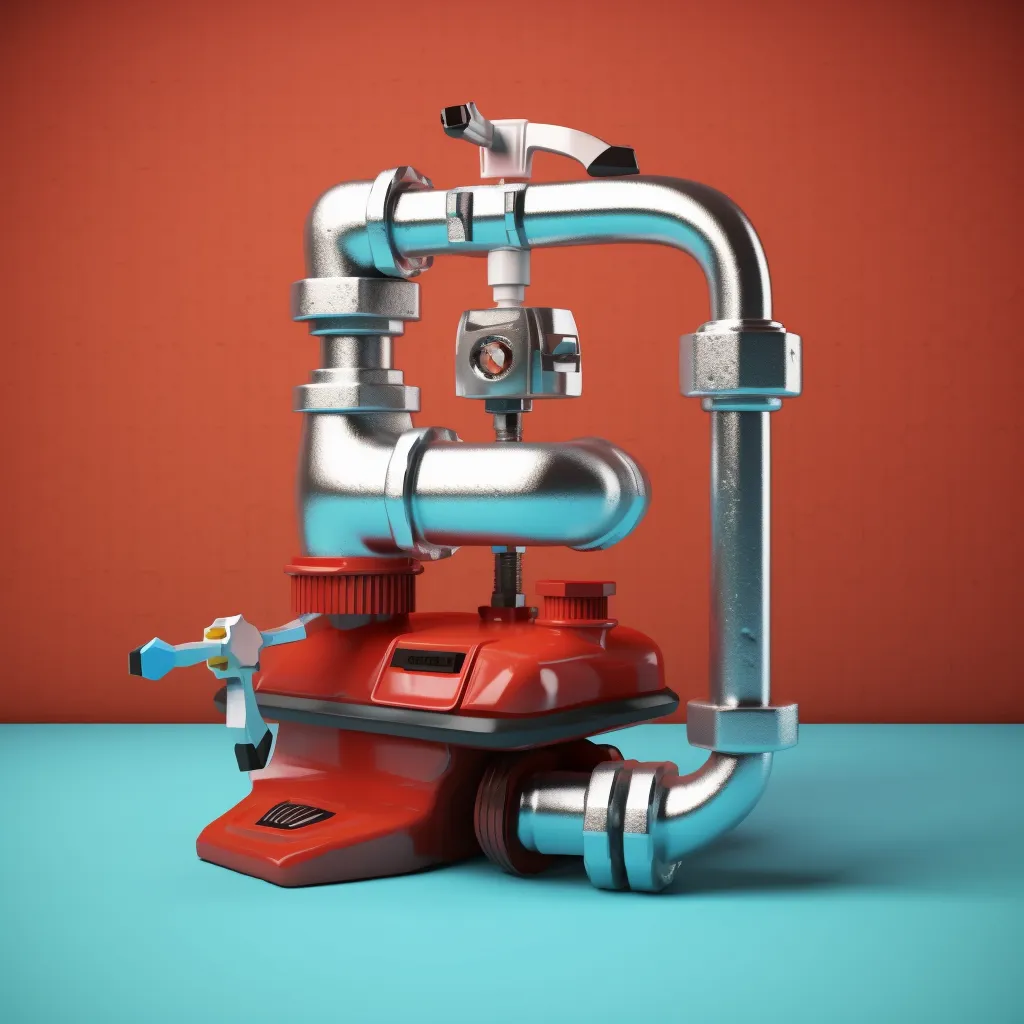
Age: If your water heater is more than 10 years old, it may be time for a replacement. Older units are less efficient and more prone to breakdowns.
Rusty Water: If you notice rusty or discolored water coming out of your faucets, it could be a sign that your water heater is corroding on the inside. This is a clear indication that a replacement is necessary.
Leaks: Water pooling around your water heater or dripping from the tank is a definite red flag. Even a minor leak can quickly escalate into serious water damage, so it's important to address the issue promptly.
Inadequate Hot Water: If your hot water runs out quickly or doesn't get as hot as it used to, it may indicate that your water heater is no longer functioning efficiently. This can often be resolved with a repair, but if the problem persists, a new unit may be the best solution.
Strange Noises: Booming, rumbling, or banging noises coming from your water heater can be a sign of sediment buildup. Over time, this sediment can cause damage to the tank and reduce its efficiency.
High Energy Bills: If your energy bills have been steadily increasing without a clear reason, your water heater may be to blame. Older, inefficient models can consume more energy, resulting in higher utility costs.
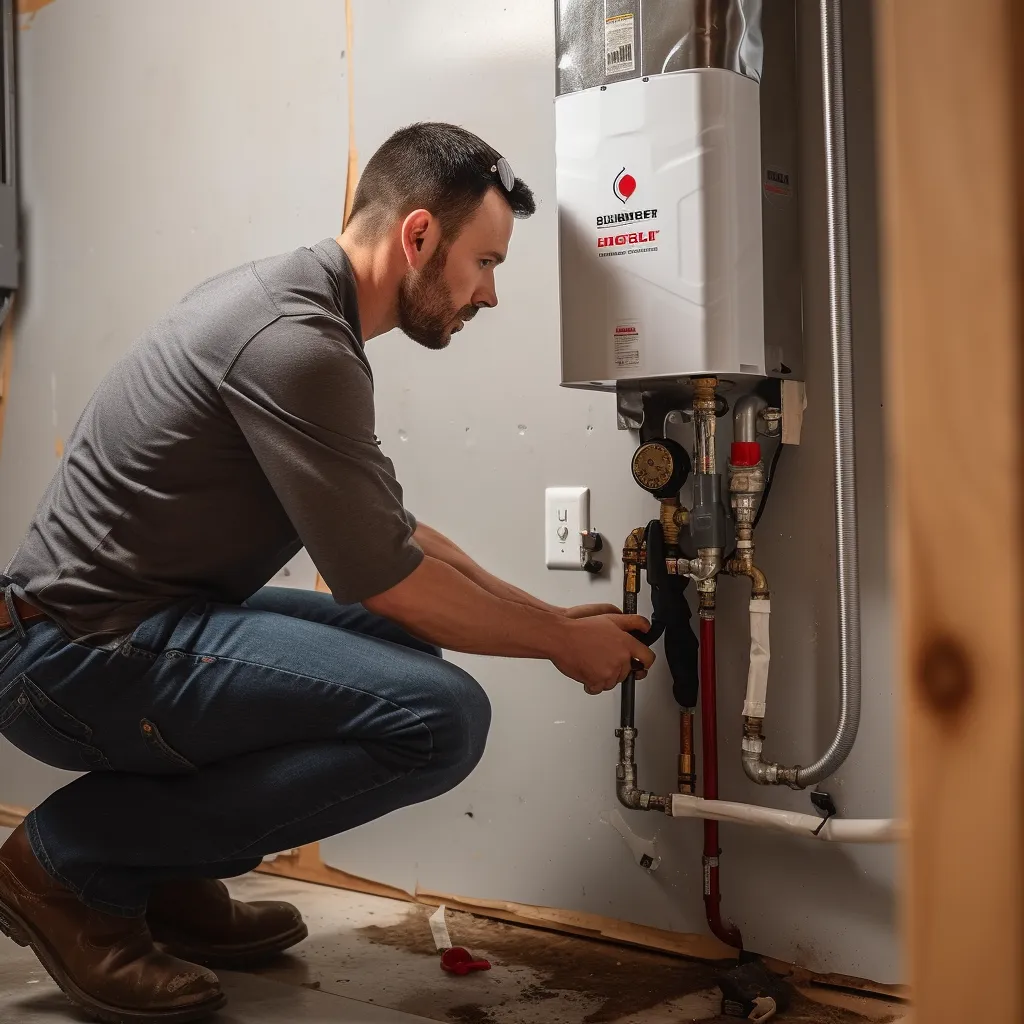
Keep an eye out for these signs and don't hesitate to seek professional help if you suspect that it's time for a new water heater.
What is the cost to replace a water heater?
When you need to replace your water heater, there are a few things that affect the cost. Some factors include:
Choose the right water heater type and size to save money. The type can be either traditional with a tank or tankless. The size should be based on your household's hot water needs.
While energy-efficient water heaters may be pricier upfront, they can help you cut down on your energy expenses in the long run. Although they may have a higher initial cost, choosing to invest in a more efficient model can prove to be a cost-effective decision over time.
The installation of a water heater can vary in cost depending on certain factors. Factors such as how easy it is to access the installation location, the need for proper venting, and any required changes to the existing plumbing can all contribute to the overall installation expenses.
When it comes to replacing a water heater, it can be quite costly. The amount you'll need to spend can vary depending on a few different factors. For standard electric water heaters, the replacement costs typically range from $500 to $2,500. However, if you have a tankless water heater, the repair costs can be even higher, ranging from $1,000 to $3,500. With such significant expenses involved, it's essential to consider the long-term benefits. By choosing a high-quality water heater, you can enjoy lower utility bills and improved energy efficiency in the future. So, it's a worthwhile investment in the long run.
FAQs about replacing and installing a water heater
Are you considering replacing or installing a new water heater? Here are some commonly asked questions you might have:
Why would I need to replace my water heater?
There are a few reasons you might need to replace your current water heater. It could be due to age, performance issues, or irreparable damage. Replacing your water heater can improve energy efficiency and ensure a consistent supply of hot water.
How long does a water heater typically last?
The lifespan of a water heater can vary depending on factors like usage, maintenance, and the type of water heater. Generally, traditional tank-style water heaters last around 10-15 years, while tankless water heaters have a longer lifespan, averaging 20 years or more.
What are the different types of water heaters available?
The two main types of water heaters are traditional tank-style and tankless. Traditional tank-style heaters store and constantly heat a large volume of water, while tankless heaters heat water on-demand as it passes through the unit. There are also hybrid water heaters and heat pump water heaters available.
How do I choose the right size water heater?
The size of your water heater should be based on the needs of your household. Factors to consider include the number of occupants, usage patterns, and the number of bathrooms. A professional can help you determine the appropriate size for your specific needs.
Can I install a water heater myself?
While it is possible to install a water heater yourself, it is generally recommended to hire a professional plumber. This ensures proper installation, adherence to local building codes, and compliance with safety regulations.
How much does it cost to replace a water heater?
The cost of replacing a water heater depends on various factors such as the type, size, and location of the unit. Additional costs may include installation fees and any necessary upgrades to meet building codes. It's best to consult with a plumber to get an accurate estimate based on your specific situation.
Is it necessary to drain my water heater regularly?
Yes, it is essential to periodically drain your water heater to remove sediment buildup. Sediment can affect the efficiency and performance of your water heater over time. It is recommended to drain your water heater at least once a year.
Remember, for any specific questions or concerns related to replacing or installing a water heater, it's best to consult a professional plumber who can provide expert guidance and ensure a successful installation.
Ways to save money when upgrading your hot water heater
When it's time to replace your hot water heater, there are a few ways you can save money in the process. Here are some tips to help you keep costs down:
Shop around and compare prices: Don't settle for the first quote you receive. Take the time to research different suppliers and compare their prices. By doing so, you can find the best deal available and potentially save a significant amount of money.
Consider energy-efficient options: When choosing a new hot water heater, opt for an energy-efficient model. These units are designed to be more efficient and can save you money on your energy bills in the long run. Look for models with a high Energy Factor (EF) rating and consider tankless water heaters, which only heat water as needed, avoiding energy waste.
Take advantage of rebates or incentives: Check if there are any rebates or incentives available for purchasing an energy-efficient hot water heater. Many utility companies and government agencies offer incentives to encourage the purchase of energy-saving appliances. Taking advantage of these programs can significantly reduce the cost of your new water heater.
Hire a professional: While it may be tempting to tackle the installation yourself, hiring a professional can save you money in the long run. They have the knowledge and expertise to properly install the water heater, ensuring it works efficiently and avoids any potential issues. Improper installation can lead to costly repairs down the line, so investing in professional help can be a wise decision.
Maintain your new water heater: Once you have your new hot water heater installed, make sure to properly maintain it. Regular maintenance, such as flushing the tank and checking the pressure relief valve, can help prolong its lifespan and keep it operating efficiently. By taking care of your water heater, you can avoid unnecessary repairs and potential replacement costs in the future.
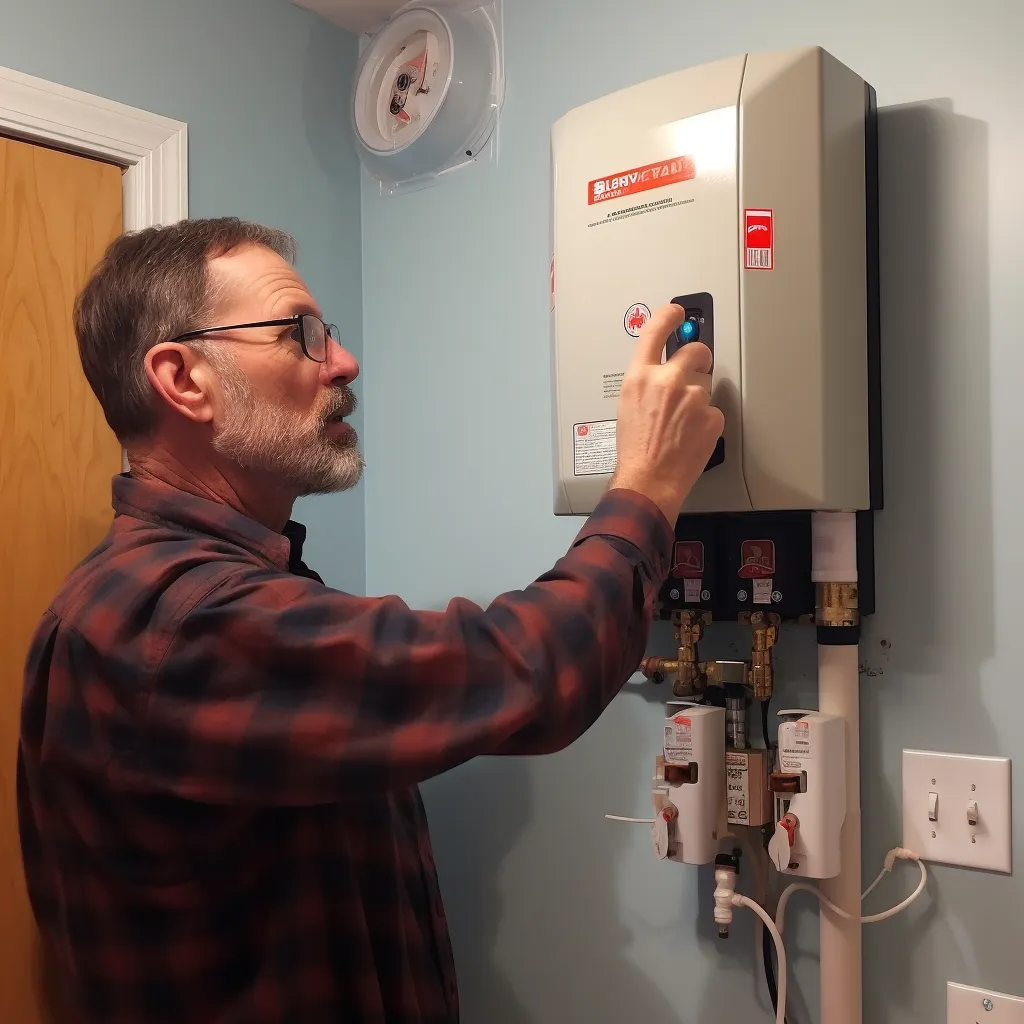
Hiring a professional vs DIY installation of a water heater
Replacing an old water heater may seem like a good idea to save money, but it can be complicated. Installing it yourself may be tempting, but professionals have the skills and knowledge needed. Getting professional installation can save you money in the future.
Hiring professionals for water heater installation is important. They have the knowledge to do it right, following all the rules. Plus, they usually offer warranties, so you don't have to worry and can relax.
However, attempting to install a water heater yourself may seem appealing, but it is not a recommended approach. DIY installations can result in mistakes that can end up costing you more in the long run, whether it be for repairs or higher energy bills.
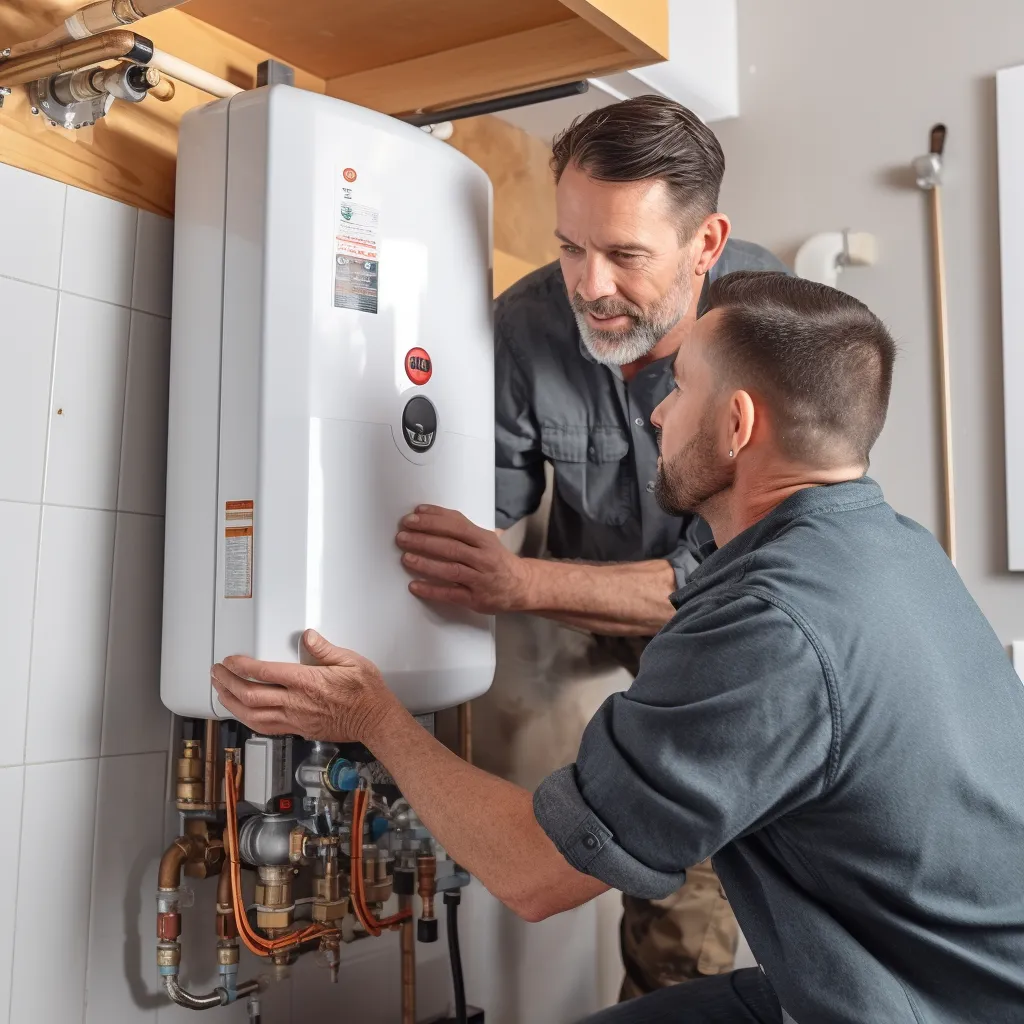
Advice on finding a water heater professional
Looking for a professional to install your water heater? Here are some helpful tips to guide you in finding the right expert:
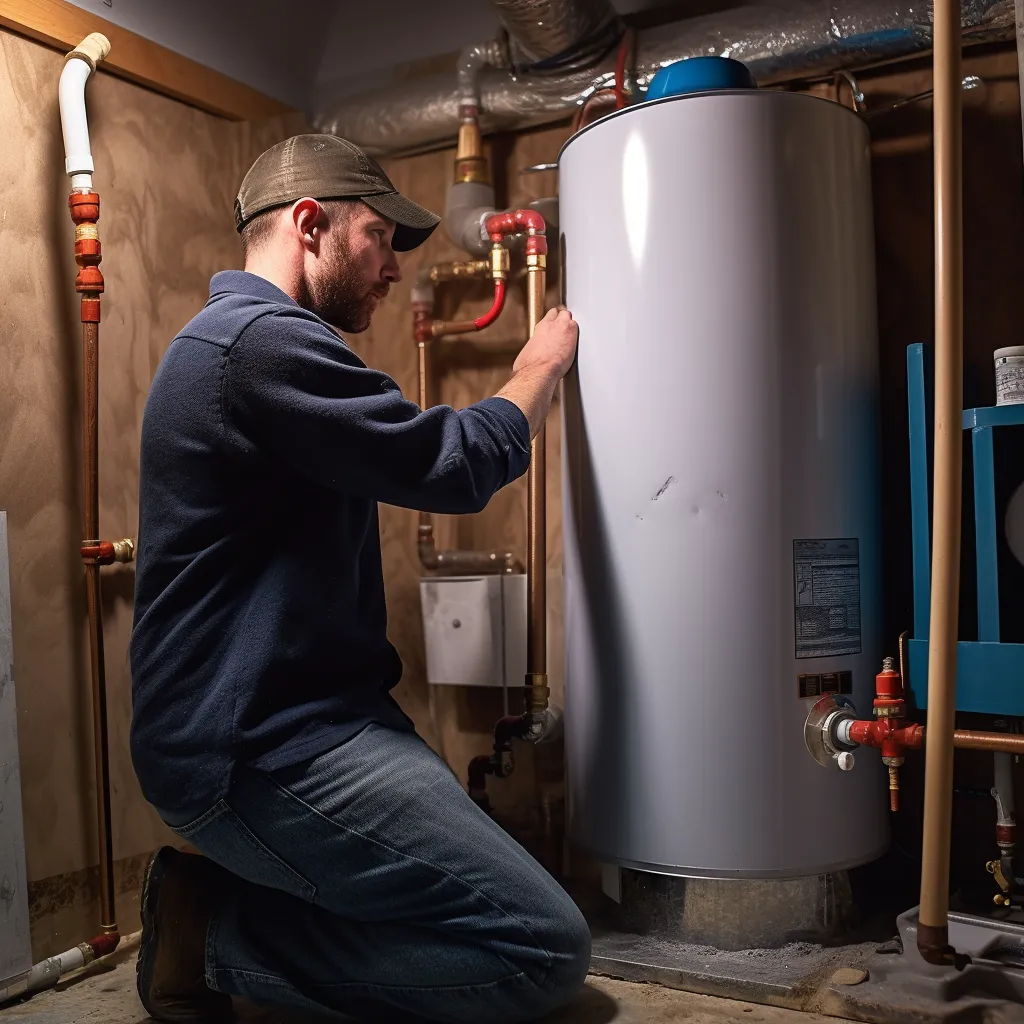
Seek recommendations: Start by asking friends, family, or neighbors if they have any recommendations for water heater installers. Personal referrals can be reliable and give you an idea of the quality of service.
Research online: Use search engines to find local water heater professionals in your area. Read through customer reviews and ratings to get an understanding of their reputation and customer satisfaction.
Check licensing and certifications: Ensure that the professional you hire is licensed to perform water heater installation in your state. Additionally, look for any relevant certifications that demonstrate their expertise in this field.
Verify insurance coverage: It is essential to choose a professional who has liability insurance. This will protect you from any potential damages or accidents that may occur during the installation process.
Request multiple quotes: Contact several water heater professionals and request a detailed quote for the installation. Compare their prices, services, and warranties offered to make an informed decision.
Experience matters: Look for professionals who have been in the industry for a significant amount of time. Experienced installers are likely to have dealt with a variety of installation scenarios and can handle any challenges that arise.
Ask about warranties: Inquire about the warranties provided by the installer and the water heater manufacturer. A reputable professional should offer both labor and parts warranties to give you peace of mind.
Communicate openly: When contacting potential installers, ask questions and communicate your specific needs and requirements. This will help you gauge their knowledge, expertise, and customer service.
Contact Us
